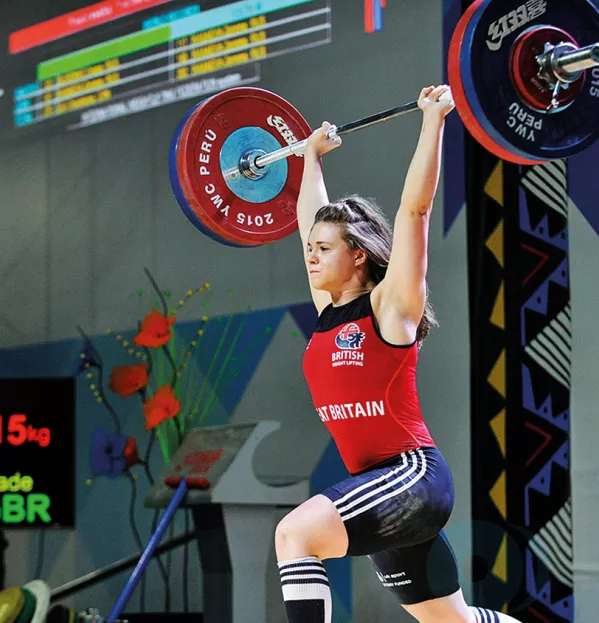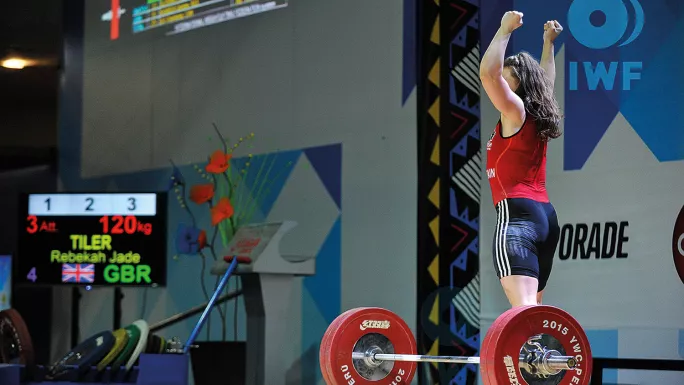
Snatch a win for good behaviour

At Patchway Community College on the edge of Bristol, times have been tough. A recent Ofsted report in particular was disheartening. But we’re turning things around. And one of the ways we are doing that is through offering Olympic weightlifting to some of our most challenging students.
As deputy head with a responsibility for inclusion, I first considered a weightlifting programme about five years ago after meeting the charismatic British Olympic weightlifting record holder Bradley Burrowes. He is something of a Bristol legend.
We had taken individual students from Patchway - those who were on the brink of permanent exclusion - to the famous Empire Gym in the St Paul’s area of that city to work with Burrowes. It soon became apparent that the sport had potential benefits for students who were lost. It was just them and the bar.
The sense of achievement for them came not from the heft of the weights they lifted, but from the fact that the techniques they were mastering were tangible. Mixing with strong but compassionate adult males was also a significant part of the recipe.
Unfortunately for those students, the programme often came too late and it ended up being a sticking plaster over some serious issues of disaffection, drug use and mental health problems. Yet the sport was clearly motivational for some extremely hard-to-reach students.
We wondered if it would work if the scheme was something that students could only do once they had already started to turn their behaviour around, instead of being a last throw of the dice. We thought that a range of student needs around confidence and resilience might also be met through such an intervention.
So, with the consent of my headteacher and our governors, and a small grant from the Patchway High School Enrichment Trust, a room was converted into our first weightlifting gym.
Pressing on
Some students were recruited strategically to take part, reveals assistant head Sean Canavan, a PE teacher turned maths teacher.
“We have targeted many individuals and for many different reasons,” he explains. “We have had perhaps one or two where weightlifting has not been right for them, but in some extreme situations we have been amazed at the turnaround in individuals.
“We have a couple of current students who were close to permanent exclusion and their behaviour is now rarely an issue. More significantly, we have students flagged up to us with multiple vulnerabilities who have developed a sense of purpose and determination that could carry them through to post-16.”
Students could attend the gym only if they had enough “achievement points”, and that incentive proved to be an immediate success in improving behaviour. Within the first year, 100 students had learned weightlifting. A buzz began to spread that the disused classroom at the far end of the school had something cool going on in it. People saw Burrowes coming in wearing his England tracksuit, walking down the corridor and disappearing through a doorway. It was intriguing. This became our internal publicity tool.

“Within a few weeks, it took off,” says Burrowes, who works in a secure unit for young people. “The feedback I was getting from everyone was great. In the short space of time that this programme has been running, the change that I have seen in all of the students is outstanding. This programme builds character, confidence, maturity, teamwork, self-esteem and self-worth.”
The original gym was half the size of a normal school room and furbished with horse-stable mats and any bars and weights that were on discount via Amazon. At the end of the first year, a knock-through was agreed and the gym doubled in size. Our students gave up their time to decorate it.
The gym might not be pristine or particularly salubrious, but that was never the intention. Carol Dweck would approve of the growth mindset and sweat flying around in a spit-and-sawdust environment.
Lifting aspirations
Fin, by his own admission, was once one of the most challenging boys in his year. Now, he is a real leader and vying for the school’s “best lifter” title. He also has one of the highest achievement points totals in the year and mentors a young weightlifter in Year 7.
“Weightlifting is the place where I feel like myself and it makes school a place I want to be,” he says. “I’m helping a Year 7 boy to understand that he needs to eat properly because he has a lot of potential. I know that he looks up to me, so hopefully he will listen to my advice.”
Fonni is originally from Hungary and experienced some difficult times when she first came to the school. She used to lose her temper frequently with other students. “Now,” she says, “if someone annoys me, I don’t get angry any more because I know I will have weightlifting and I know after that I will be relaxed”.
She trains almost every day, helps the coaches with younger students and has a different attitude to school; weightlifting has helped her to manage her emotions and given her a real identity. A career in coaching beckons.
Dean (pseudonym) is in Year 8 and has a child-in-need plan. He now helps to deliver sessions to Year 7 students. Dean has a great coaching eye, and can give really accurate cues and corrections to others. As well as weightlifting in the gym, he also trains out of school and comes in early in the mornings to tell us what he did the previous night.
None of the students would be where they are without this intervention.
Of course, some may think that weightlifting has no place in a school. But the old perception of weightlifting stunting the growth of young people has thankfully been replaced by a scientific understanding that it can actually benefit adolescent development, strengthening bones and connective tissues, and reducing injuries that might be picked up in other sports. Younger students work purely on technique and are not allowed to add weight to the bar until they are more than proficient.
For a theorist who would support our work, we would tip a nod to Abraham Maslow, as the sense of belonging and support of others and the certainty of accomplishment are unquestionable. We can see it daily in our students.
For youngsters growing up in an increasingly detached world, weightlifting is the most grounding of activities and a great story for them to tell. More than a quarter of Patchway students have now tried weightlifting at some point. Many move on to conventional gym training to keep fit, some continue with another sport and others have decided it’s just not for them. But for those who are on the programme, it gives them a wonderful answer to a simple question about identity that in tough neighborhoods, where a lot of hope and aspiration has gone, is so important.
“What do you do?”
“I’m a weightlifter.”
Vaughan Edwards is deputy head with a responsibility for inclusion at Patchway Community College. He tweets @MrEdwardsV
You need a Tes subscription to read this article
Subscribe now to read this article and get other subscriber-only content:
- Unlimited access to all Tes magazine content
- Exclusive subscriber-only stories
- Award-winning email newsletters
- Unlimited access to all Tes magazine content
- Exclusive subscriber-only stories
- Award-winning email newsletters
You need a subscription to read this article
Subscribe now to read this article and get other subscriber-only content, including:
- Unlimited access to all Tes magazine content
- Exclusive subscriber-only stories
- Award-winning email newsletters
- Unlimited access to all Tes magazine content
- Exclusive subscriber-only stories
- Award-winning email newsletters